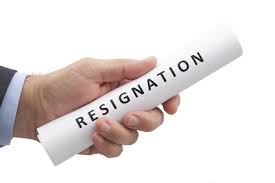
Tips For a Smooth Resignation
The decision to resign from a job is not always an easy one. Maybe you received a better job offer. Perhaps you are not being fulfilled in your current position. Or maybe you are just ready for a change. Regardless of the reason, the resignation process can be daunting, and employees who do not handle it appropriately can damage valuable professional relationships that would otherwise help their career.
So how do you quit your job and ensure a smooth transition for you and your employer?
1. Be certain you have a formal written offer in hand that has been officially accepted with a confirmed compensation package and start date.
While it may seem obvious, this is extremely important. Imagine submitting a resignation letter to your current employer under the assumption that you will be starting a position with a new company in two weeks only to find out you do not have a job? It happens! There are a number of technicalities that can hinder a company from moving forward with a job offer. For instance, some offers are contingent upon other factors such as results from drug screenings, background checks, and reference checks. And while it is easy to dismiss any concerns towards these contingencies if your life has been on the straight and narrow, you should consider the following:
- Some companies will exclude you if you are found using certain prescription medications.
- Background checks can include credit checks, and a low credit score can (in some states) be grounds for losing a job offer, depending upon your status and position.
- Not everyone really likes you. While you may do your best in selecting references who would have nothing but positive feedback to provide about you, people share what they want. And it would be awful to discover a “frenemy” during a job search.
2. Have a written resignation letter for submittal with a specific end date.
This is a good practice as it gives both you and the company a strict deadline for tying up any loose ends or pending projects. How much notice should you give when resigning? Two weeks’ notice is the standard minimum, and although not required, it is usually appreciated by employers. Don’t assume you need an extended resignation period. Two weeks provides employers with a sufficient amount of time to consider who your replacement might be while you ensure your work transitions smoothly. It also protects you from having to work longer than anticipated. Remember, all SMART (specific, measurable, attainable, relevant, & time-bound) goals have deadlines, and when quitting your job, it becomes one of them.
3. Be prepared for a counteroffer.
When submitting a resignation letter, you should always be prepared for your employer to make an effort to get you to stay. Take time to really consider ahead of time your reasons for leaving the company, whether that be an inadequate salary, poor benefit plans, lack of work-life balance, etc. Knowing your why will keep you on track in the event that a counter offer is made. If you are satisfied with your pay but are leaving due to the poor work-life balance, a 2% raise should not make you question your decision. If your workload is already overwhelming, a raise is not going improve it. On the other hand, if your main motivator for leaving is an inadequate salary, you should consider why you had to resign in order to get a raise. What will it take for you to get your next raise? This ensures that you are not caught off guard at any point during the resignation process and do not absent-mindedly agree to stay on terms you will later regret.
4. Be gracious and professional during your resignation period.
Maintaining professionalism throughout the entire resignation process is essential, no matter how challenging it is. Burning bridges is a bad practice and has the potential to negatively affect your career. Consider that a potential future employer requests to speak with your soon-to-be former employer about your work at the company only to receive criticism on how you conducted yourself during your last week. This would surely discourage a company considering you for hire. It is important to remember that regardless of how much of a positive impact you have had on a company, squandering the last two weeks can quickly overwrite that legacy.
Here are a few simple things you can do to maintain professionalism and grace:
- Be polite & smile when appropriate.
- Be patient during the transition as managers can sometimes begin assigning additional projects in a last ditch effort to utilize the company’s most experienced resources.
- If you have already secured a new position, don’t overshare the details. No matter how relaxed the company culture may appear, it is best to remain conservative to prevent any undesirable issues that might affect your new job.
5. Schedule at least one lunch or coffee meetup with your future employer during the resignation period.
There’s something about coffee and food that helps build bridges. Grabbing coffee or lunch with your new employer is a great way to start the relationship. It gives the opportunity to have an informal sit-down out of the office before you become an official office-mate. And hopefully, the meeting will solidify your decision to begin a new journey in your career.
Resigning Successfully
The resignation process is full of intricate details throughout, but it doesn’t have to be difficult. Maintaining a high level of professionalism and preparedness can make a huge difference in the outcome. You should always do your best to ensure a smooth transition for both you and your employer. This will leave the company with fond and professional memories of you, and in turn, managers won’t hesitate to recommend you for other opportunities. Always resign with the future in mind.
Ready to discuss the recruiting or job search process? Drop us a note!
"*" indicates required fields
